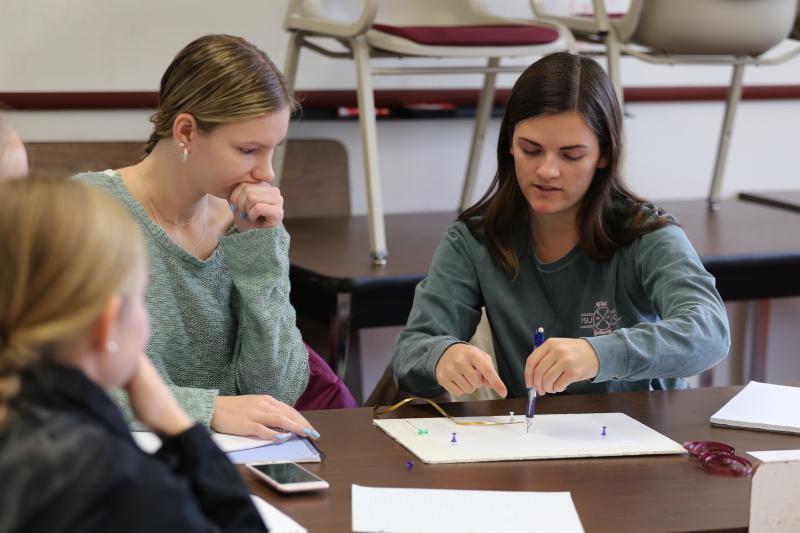
The Mathematics Education major in the Curriculum and Instruction degree program is designed to prepare you to bridge research and practice in the teaching and learning of mathematics. Offering an online master’s in mathematics education, as well as in-person master’s, specialist (Ed.S.) and doctoral (Ph.D.) degrees, the program features core courses that highlight historically based introductions to theories of learning and curriculum development. As you complete your Ph.D., Ed.S. or master’s in mathematics education, you will gain methodologically focused contemporary perspectives on teachers’ professional learning and students’ mathematical learning.
There are three key features of our graduate programs:
- Students in our program are exposed to a broad view of the landscape of mathematics education, taking courses from faculty whose research interests range from special education to undergraduate mathematics education.
- A common focus across our program is the consideration of teachers’ professional growth across a variety of contexts, with a particular emphasis on the ways in which teachers attend to student thinking to support the learning of all.
- Our college is well-situated to support students’ exploration of their interests through coursework and collaborative projects across disciplines; as a student, you are encouraged to pursue these opportunities.
DEGREES
Online Master’s in Mathematics Education
Designed for current educators, the online master’s in Curriculum & Instruction with a major in mathematics education allows you to continue working while earning an advanced degree. The program enhances mathematics teachers’ professional knowledge and skills through an emphasis on the analysis and application of relevant research through a program of core courses (taken by teachers from across disciplines and educational contexts) and elective courses, as part of a cohort model. Faculty members provide opportunities for you to further your pedagogical and subject matter knowledge and skills by focusing on research-based best practices and developing leaders in schools. Learn more.
Doctoral (On Campus)
In the doctoral program, we select students with the necessary preparation and dedication needed to succeed in this content-focused and research-intensive major. The program has been designed to maximize interactions between faculty and students and to focus on current issues of research and practice. It also provides you with considerable flexibility as you pursue your developing goals and interests. A central feature of the program is the inclusion of scaffolded teaching and research apprenticeships that allow you to become a productive researcher and scholar in mathematics teacher education.
As a doctoral student, you are encouraged to pursue interdisciplinary collaborations that leverage your rigorous mathematical preparation. Such collaborations have the potential to offer new insights, theoretical perspectives, and methodological approaches to pivotal challenges facing the field of mathematics education. Learn more.
Please note: These are advanced programs designed for current teachers or other educational professionals. If you are seeking teacher certification for Mathematics (grades 6-12), please see our FSU-Teach program.
In order to meet minimum University admission requirements, applicants must have:
- A bachelor’s degree with at least a 3.0 GPA – An earned bachelor’s degree from a regionally accredited U.S. institution, or a comparable degree from an international institution, with a minimum 3.0 (on a 4.0 scale) grade point average (GPA) in all coursework attempted while registered as an upper-division undergraduate student working towards a bachelor’s degree.
- GRE test scores*. Official test results are required from the General Test of the Graduate Record Examination (GRE). These scores are considered official only when they are sent directly to the Office of Admissions from the testing agency. Examinee copies are not considered official. Graduate Record Exam (GRE): http://www.ets.org/ – FSU Institution Code: 5219. The Educational Testing Service (ETS) do not retain scores longer than five years. If your test scores are older than five years, you may have to retake the test to have official scores sent directly to FSU from the testing agency. If you have the report that was mailed to your home address for older scores, then FSU will accept that report.
- M.S. and Ed.S. applicant target scores: Verbal – 146+, Quantitative – 140+
- Ph.D. applicant target scores: Verbal – 151+, Quantitative – 145+, Writing – 3+
- *NOTE: The GRE admission requirements for master's and specialist programs have been waived through Fall 2026.
- Language proficiency test (international students only) – FSU accepts scores from TOEFL (minimum 80), IELTS (minimum 6.5), MELAB (minimum 77), Cambridge C1 Advanced Level (minimum 180), Michigan Language Assessment (minimum 55), and Duolingo (minimum 120)
- Transcripts – Applicants must submit an official transcript from each college and/or university attended. Transcripts should be sent to the Office of Graduate Admissions electronically at graduateadmissions@fsu.edu or via mail in a sealed envelope:
- Florida State University
Office of Graduate Admissions
314 Westcott Building
P.O. Box 3061410
Tallahassee, FL 32306-1410 - Admission to graduate study is a two-fold evaluation process. The Office of Admissions determines eligibility for admission to the University, and the academic department, program, or college determines admissibility to the degree program. University graduate admissions requirements are found at https://gradschool.fsu.edu/admissions/graduate-admissions. Academic programs have additional requirements.
- Florida State University requires a course-by-course credential evaluation for all applicants that have degrees from a non-U.S. institution. International and domestic applicants with degrees earned from international institutions must submit their official transcripts through a NACES approved evaluator for transcripts from a non-U.S. institution. SpanTran has created a custom application for Florida State University that will make sure you select the right kind of evaluation at a discounted rate. See the “Transcript Requirement” section on The Graduate School website, https://gradschool.fsu.edu/admissions/graduate-admissions, for detailed information on University transcript requirements for graduate admission.
- Florida State University
Applicants must upload the following REQUIRED supporting documents to the Admissions Application Portal:
- Statement of purpose – should describe your purpose for pursuing a degree, qualifications and long-term career goals.
- At least one (1) page for M.S. and Ed.S. applicants
- At least two (2) pages for Ph.D. applicants
- Letters of recommendation
- Two (2) for M.S. and Ed.S. applicants
- Three (3) for Ph.D. applicants
- One-page resume/curriculum vitae
- Writing Sample – it is acceptable to submit a paper used in another class, or one that was published. (PhD applicants who do not have a suitable writing sample may submit a writing response.)
- Online master’s program:
- Fall: July 1
- Specialist program:
- Fall: July 1
- Spring: November 1
- Summer: March 1
-
Doctoral program:
- Fall: December 1 (priority deadline); July 1 (final deadline)
If you are interested in applying, please contact STE-GradCoord@fsu.edu.
Christine Andrews-Larson: Dr. Andrews-Larson’s research is broadly structured around three interrelated foci: (1) student reasoning and instructional design that leverages that reasoning (e.g., in the context of inquiry-oriented mathematics instruction), (2) supports for instructors to productively elicit and build on student reasoning, and (3) attention to equity, particularly regarding ways in which inquiry-oriented instructional approaches may provide different kinds of learning experiences and outcomes for different groups of students. Notably, she has earned grants from the National Science Foundation to pursue this work in the areas of undergraduate linear algebra and in the context of integrating middle grades mathematics with computer science using Scratch.
Robert C. Schoen: Dr. Schoen’s research focuses on educational interventions designed to improve teaching and learning in K–5 mathematics (with an emphasis on number, operations, and algebraic thinking) and grades K–8 statistics. He has directed more than one-dozen randomized controlled trials of interventions focused on increasing teachers’ professional capacity, including programs such as Florida’s Mathematics Formative Assessment System (MFAS) and Cognitively Guided Instruction (CGI). His work always involves partnerships with schools and school districts as well as interdisciplinary collaboration with experts in diverse fields such as educational and psychological measurement, statistics, psychology, and of course, mathematics.
Ian Whitacre: Dr. Whitacre studies K-8 mathematics teaching and learning. The majority of his work has focused on (a) students’ reasoning about integers and (b) prospective elementary teachers’ number sense development. In addition, Dr. Whitacre’s current project concerns (c) mathematics teaching and learning with PhET interactive simulations at the middle-school level.
Curriculum choices in our master’s and specialist programs are designed to enable students to become teacher leaders, college instructors, as well as curriculum specialists, state testing specialists and textbook company representatives. Doctoral program graduates are prepared to become university professors, researchers and leaders in the field.
According to the U.S. Bureau of Labor Statistics, job outlook for high school teachers is expected to grow 7.5% through 2026, which equates to approximately 79,500 new jobs. The job outlook for instructional leaders/coordinators is expected to grow up to 10.5% through 2026. That translates into over 17,000 new jobs nationwide. The median national annual salary range for instructional leaders/coordinators is $64,450 per year. In the state of Florida, mathematics teachers are identified as one of the critical shortage areas. For university or college professors, the Bureau predicts a 9.2% increase in jobs by 2026, totaling 5,300 new jobs. The median national salary is $73,230 per year.
A career in mathematics education can be very rewarding, and a typical path offers ample opportunities for professional development and growth. Educators make a difference in the lifelong learning experience of their students, as well as, the quality and standards of the programs they teach.
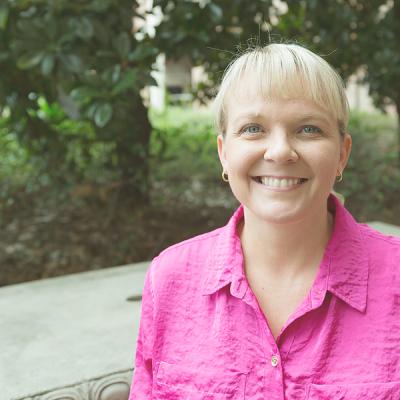
Charity earned her Bachelor of Arts degree in Elementary Education from the University of West Florida in 2004. After graduation, she taught at the elementary level in Okaloosa County for six years before joining Learning Systems Institute (LSI) at Florida State University in 2011. During her time with LSI, Charity has worked with Dr. Robert Schoen on several large-scale projects studying various aspects of mathematics education, including evaluating a professional development program called Cognitively Guided Instruction and as a task developer for the Mathematics Formative Assessment System (MFAS) project. She has been a full-time research faculty member at LSI for 11 years. Charity is interested in how teachers analyze, interpret, and respond to students’ mathematical thinking as well as how attending to students’ mathematical thinking improves teaching and learning.
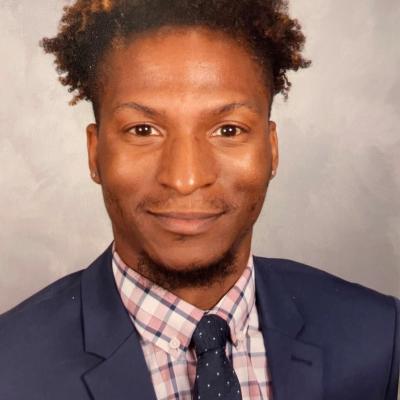
Domonique earned his Bachelor of Arts degree in Spanish Linguistics from the University of Florida in 2011. After which, he worked as an elementary mathematics and science teacher for nine years in Gadsden and Leon County. During that time, he earned his Master of Education in Educational Leadership from Florida A&M University in 2018. His research interests include feedback, assessment, and understanding deficit narratives about students in mathematics classrooms. His career goal is to become a professor and work with pre-service elementary teachers.
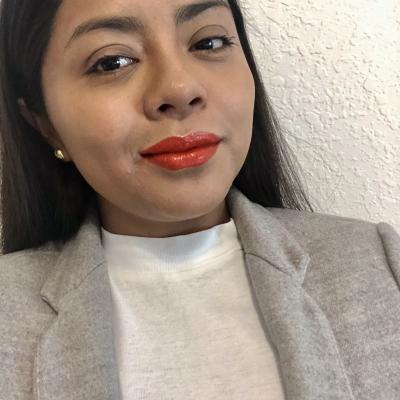
Anairis studied her undergraduate and master’s programs in Mathematics Education in Mexico, where she also worked for one year as a middle school mathematics teacher. As an undergraduate, she researched elementary functions in complex variables. During her master's program, she researched the topic of similarity of triangles at the secondary level. Anairis is currently interested in geometry proof at the high school level, and her career goal is to gain research experience and to develop her skills in mathematics teaching in order to work as a professor.
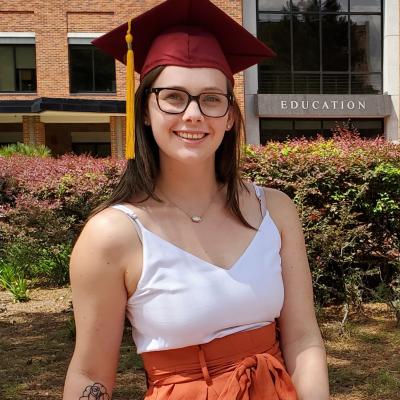
Spirit Karcher earned a B.A. in Mathematics from Christopher Newport University in 2018 and a M.S. in College STEM Teaching with a specialization in mathematics from Florida State University in 2020 before starting in the Mathematics Education Ph.D. program. Her research interests include the role of quantitative and covariational reasoning in the design of professional development for mathematics graduate teaching assistants and how teaching assistants learn to teach more generally. Spirit’s career goals are to become a mathematics/mathematics education professor and to work with teaching assistants to improve the quality of instruction for introductory undergraduate mathematics courses.

Ms. Minah Kim is a doctoral student working under Dr. Christine Andrews-Larson. Her academic interests are mathematics teacher learning, inquiry-oriented teaching in undergrad mathematics, and sociopolitical perspective in mathematics education. Ms. Kim completed her B.S in Mathematics Education in South Korea in 2013. After graduation, she worked as a middle-school math teacher for five years. Then, she decided to study at FSU, where she completed her Master’s degree in Mathematics before beginning her doctoral studies in Mathematics Education.
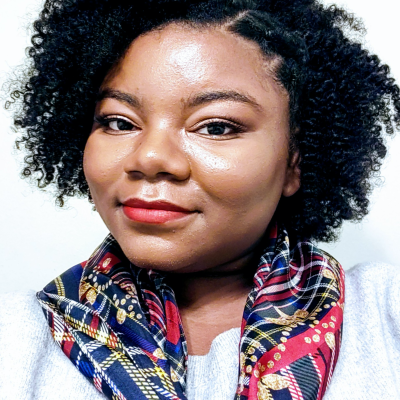
Ms. McCrackin, born in Gainesville, FL and raised in Tallahassee, attended Florida State University as an undergraduate. She double majored in Mathematics and Math Education, graduating from the FSU-Teach program in 2018. After graduation, she taught various high school math classes at Lawton Chiles High School. As a full-time secondary teacher for the next three years, she also was a co-sponsor of the Mu Alpha Theta club at Chiles. She is now a full-time doctoral student in the math education program with research interests in secondary math education and Project-Based Learning.
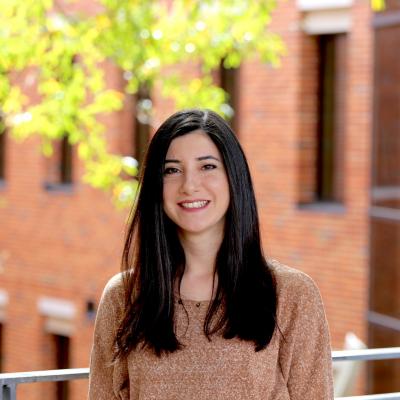
Șeyda earned her B.S. degree in Mathematics and her teaching certificate from Ankara University. She then taught in K–12 school settings for four years. As a doctoral candidate at FSU, she has served as a TA for EDF 1005. She also works as a research assistant, contributing to the NSF-funded E-Rebuild project. Șeyda’s scholarly work is grounded in secondary–tertiary transition experiences of women and underrepresented minority students majoring in mathematics. As a scholar and educator, she aims to promote inclusive and equitable spaces in higher education for individuals with diverse backgrounds. Her career goal is to work as a faculty member at a research university.
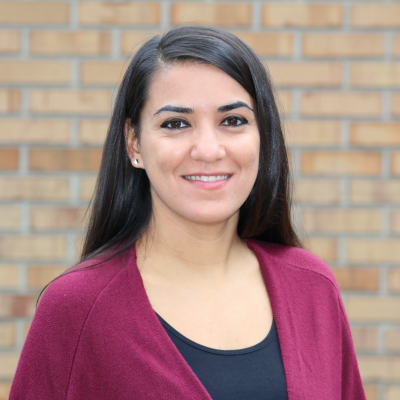
Șebnem graduated from the Department of Primary Education with a bachelor’s degree in Mathematics Education from Bogazici University in 2009. After graduation, she spent one year in Absdorf Volkschule, Austria, as a Comenius Language Assistant. She then worked as a middle school mathematics teacher in Istanbul for 6 years. During that time, she also completed a master’s degree in Primary Education at Bogazici University. She is currently a postdoctoral research associate at the University of Southern California’s Rossier School of Education.
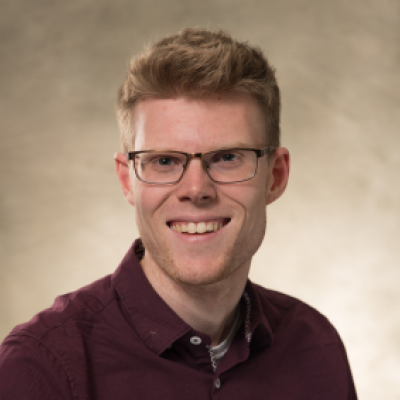
Before beginning a Ph.D. in Math Education, Kelly completed a bachelor’s degree in Pure Mathematics and began a Ph.D. in Statistics at FSU. During his time as a Statistics TA, he developed interests in the advancement of the statistics curriculum, instructional strategies for statistics, and professional development for TAs. He decided to complete a master’s degree in Statistics and then pursue a Ph.D. in Mathematics Education. Kelly is now a Teaching Assistant Professor of Statistics at the University of Illinois, Urbana-Champaign. He teaches undergraduate statistics courses, spearheads TA training and professional development in his department, and conducts research into student thinking and instructor preparation in statistics.
https://stat.illinois.edu/directory/profile/kfindley
https://www.researchgate.net/profile/Kelly_Findley

Elise received her Bachelor of Science Degree in Mathematics at Southern University A&M College and her Master of Science Degree in Secondary Mathematics Education at FAMU. She currently serves as a Mathematics Instructor teaching various undergraduate mathematics courses at FAMU. In addition to teaching, her professional responsibilities are numerous including committee membership with FAMU’s HBCU-UP/College of Science and Technology Faculty Learning Community and the IAIP (Innovative Academic Instruction Project). With over 20 years’ experience in teaching, her research focuses on secondary students who are mathematically unprepared for their first-year college mathematics courses resulting in underrepresented minority groups in the STEM field.
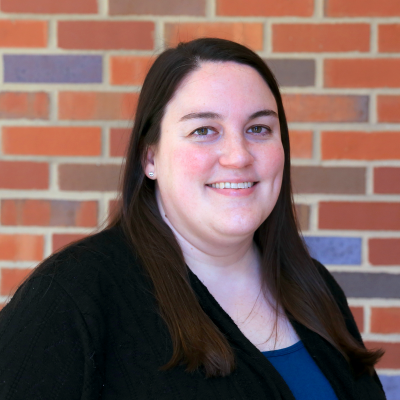
Leah’s undergraduate degree is in finance with a concentration in risk management and insurance. After graduation, she worked for a healthcare consulting firm as an analyst before pursuing her master’s degree in mathematics. After earning her master’s, she taught for three years at a technical college. She taught Beginning and Intermediate Algebra, College Algebra, and Quantitative Reasoning. She also served as the lead instructor for Beginning Algebra. In her current position as a Teaching Faculty member at FSU, she serves as the College Algebra Course Coordinator.
https://www.math.fsu.edu/~hollings/
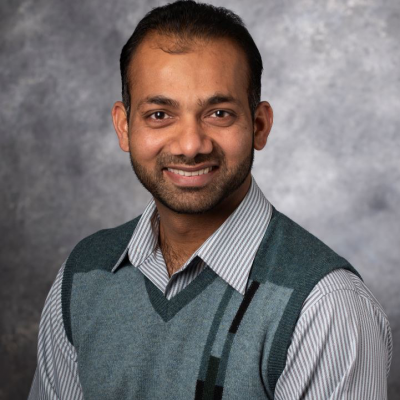
Qadeer taught Mathematics and Computer Science at the high school and college levels for more than 11 years and in three different countries. He has master’s degrees in both Computer Science and Mathematics. Qadeer’s research interest is in assessment development and validation for both K–12 and college-level courses. Currently, he is working with a team of researchers at Southern Methodist University to develop the Measures of Mathematical Reasoning Skills system comprised of two universal screening tools: Tests of Numeric Relational Reasoning (T-NRR) and Tests of Spatial Reasoning (T-SR) for elementary grades.
https://www.smu.edu/simmons/Research/RME/People/Haider
https://www.researchgate.net/profile/Muhammad_Haider33


